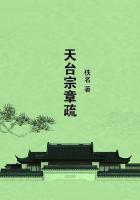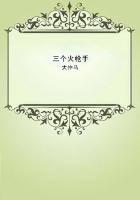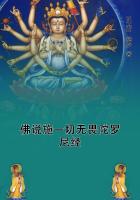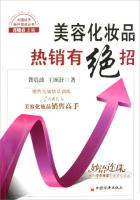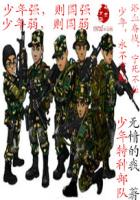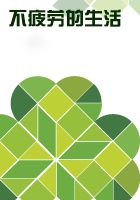Misery begets bitterness in a man; but ownership coupled with misery renders him still more bitter. He may have submitted to indigence but not to spoliation - which is the situation of the peasant in 1789, for, during the eighteenth century, he had become the possessor of land. But how could he maintain himself in such destitution? The fact is almost incredible, but it is nevertheless true. We can only explain it by the character of the French peasant, by his sobriety, his tenacity, his rigor with himself, his dissimulation, his hereditary passion for property and especially for that of the soil. He had lived on privations, and economized sou after sou. Every year a few pieces of silver are added to his little store of crowns buried in the most secret recess of his cellar; Rousseau's peasant, concealing his wine and bread in a pit, assuredly had a yet more secret hiding-place; a little money in a woollen stocking or in a jug escapes, more readily than elsewhere, the search of the clerks.
Dressed in rags, going barefoot, eating nothing but coarse black bread, but cherishing the little treasure in his breast on which he builds so many hopes, he watches for the opportunity which never fails to come. "In spite of privileges," writes a gentleman in 1755,[46]
"the nobles are daily being ruined and reduced, the Third-Estate making all the fortunes." A number of domains, through forced or voluntary sales, thus pass into the hands of financiers, of men of the quill, of merchants, and of the well-to-do bourgeois. Before undergoing this total dispossession, however, the seignior, involved in debt, is evidently resigned to partial alienation of his property.
The peasant who has bribed the steward is at hand with his hoard. "It is poor property, my lord, and it costs you more than you get from it." This may refer to an isolated patch, one end of a field or meadow, sometimes a farm whose farmer pays nothing, and generally worked by a métayer whose wants and indolence make him an annual expense to his master. The latter may say to himself that the alienated parcel is not lost, since, some day or other, through his right of repurchase, he may take it back, while, in the meantime, he enjoys a cens, drawbacks, and the lord's dues. Moreover, there is on his domain and around him, extensive open spaces which the decline of cultivation and depopulation have left a desert. To restore the value of this he must surrender its proprietorship. There is no other way by which to attach man permanently to the soil. And the government helps him along in this matter. Obtaining no revenue from the abandoned soil, it assents to a provisional withdrawal of its too weighty hand.
By the edict of 1766, a piece of cleared waste land remains free of the taille for fifteen years, and, thereupon, in twenty-eight provinces 400,000 arpents are cleared in three years[47].
This is the mode by which the seigniorial domain gradually crumbles away and decreases. Towards the last, in many places, with the exception of the chateau and the small adjoining farm which brings in 2 or 3000 francs a year, nothing is left to the seignior but his feudal dues;[48] the rest of the soil belongs to the peasantry.
Forbonnais already remarks, towards 1750, that many of the nobles and of the ennobled "reduced to extreme poverty but with titles to immense possessions," have sold off portions to small cultivators at low prices, and often for the amount of the taille. Towards 1760, one-quarter of the soil is said to have already passed into the hands of farmers. In 1772, in relation to the vingtième, which is levied on the net revenue of real property, the intendant of Caen, having completed the statement of his quota, estimates that out of 150,000 "there are perhaps 50,000 whose liabilities did not exceed five sous, and perhaps still as many more not exceeding twenty sous."[49] Contemporary observers authenticate this passion of the peasant for land. "The savings of the lower classes, which elsewhere are invested with individuals and in the public funds, are wholly destined in France to the purchase of land." "Accordingly the number of small rural holdings is always on the increase. Necker says that there is an immensity of them." Arthur Young, in 1789, is astonished at their great number and "inclines to think that they form a third of the kingdom." This already would be our actual estimate, and we still find, approximately, the actual figures, on estimating the number of proprietors in comparison with the number of inhabitants.
The small cultivator, however, in becoming a possessor of the soil assumed its charges. Simply as day-laborer, and with his arms alone, he was only partially affected by the taxes; "where there is nothing the king loses his dues." But now, vainly is he poor and declaring himself still poorer; the fisc has a hold on him and on every portion of his new possessions. The collectors, peasants like himself, and jealous, by virtue of being his neighbors, know how much his property, exposed to view, brings in; hence they take all they can lay their hands on. Vainly has he labored with renewed energy; his hands remain as empty, and, at the end of the year, he discovers that his field has produced him nothing. The more he acquires and produces the more burdensome do the taxes become. In 1715, the taille and the poll-tax, which he alone pays, or nearly alone, amounts to sixty-six millions of livres; the amount is ninety-three millions in 1759 and one hundred and ten millions in 1789.[50] In 1757, the charges amount to 283,156,000 livres; in 1789 to 476,294,000 livres.
Theoretically, through humanity and through good sense, there is, doubtless, a desire to relieve the peasant, and pity is felt for him.


